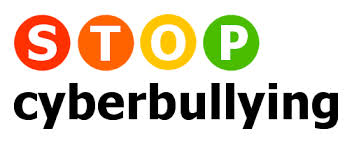New California law protects students from cyberbullying
 Cyberbullying, or using online social media platforms to disparage or intimidate peers, has grown in prevalence in schools across the country. Some local leaders are coming to understand the severity of the problem, and are working to put a stop to the digital harassment.
Cyberbullying, or using online social media platforms to disparage or intimidate peers, has grown in prevalence in schools across the country. Some local leaders are coming to understand the severity of the problem, and are working to put a stop to the digital harassment.
A new law in California aims to do just that, by giving educators the authority to discipline students for cyberbullying, even if the communication took place off of school grounds, according to local paper, The Press Democrat. The new law does not require educators to police student’s social media accounts, but gives them the authority to intervene if online communications between students turn ugly. Before the new law took effect on Jan. 1, a student could not be suspended or expelled unless the act of bullying was related to a school activity or school attendance.
A spokesperson for Assemblywoman Christina Garcia (D-Bell Gardens), the author of the bill, told The Press Democrat that bullying is no longer limited to the hallways and lunchrooms; students are using different, online avenues to harass each other. “Now [with the passage of the new law] we can actually deal with it,” she said.
Cyberbullying has proven to be a major issue, with some young people committing suicide because of online attacks. Capital Public Radio, California’s NPR affiliate, says that traditional laws and school-specific anti-bullying policy are based on physical and verbal abuse, where both victim and tormentor are present.
The new law covers anything a student can do online, no matter where they are, CPR reports. California is one of 12 states to pass such legislation.
However, critics argue the law is too broad, and will do little to address the issue. The Press Democrat reports the American Civil Liberties Union opposed the legislation on the grounds that it will encourage those in authority to address a symptom, rather than the root cause of a problem.
“Suspension and expulsion are types of exclusionary discipline which simply remove students from the classroom or school without addressing the actual cause of the student misbehavior,” the ACLU’s legislative counsel Tiffany Mock said in a statement. “Instead of reducing the likelihood of behavioral incidents, school suspensions appear to predict higher future rates of misbehavior and suspension among those students who were suspended.”
But Justin Patchin, a spokesperson for the Cyberbullying Research Center, told CPR that California’s new law gives school officials the authority to take action, and will help make the state’s schools a safer place.
“Cyberbullying is the kind of thing, as people know, that crosses from the school into the home, into the community,” Patchin told CPR. “It really necessitates a coordinated kind of response by all parties involved.”
_____________
To get connected and stay up-to-date with similar content from American City & County:
Like us on Facebook
Follow us on Twitter
Watch us on Youtube




















